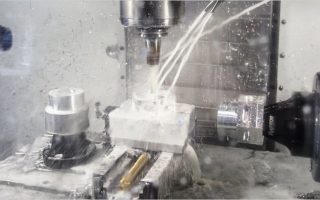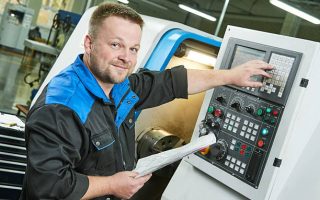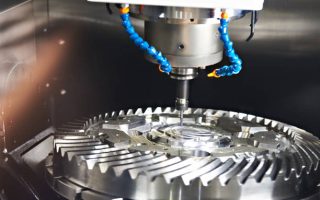
Introduction
Computer Numerical Control (CNC) is a technology that has revolutionized the manufacturing industry by automating the control of machining tools through a computer. CNC systems are used in various industries to produce precision parts by following programmed instructions, eliminating the need for manual operation. This paper aims to provide a comprehensive understanding of what CNC means, its evolution, applications, and the importance of CNC play in modern manufacturing processes. Additionally, we will explore the significance of CNC in improving productivity, accuracy, and cost-efficiency in industrial settings.
As we delve into the details of CNC, it is essential to understand the role of CNC play in ensuring the precision and functionality of CNC machines. The term \”CNC play\” refers to the slight movement or slack that may occur in the mechanical components of a CNC machine, which can affect the accuracy of the final product. Understanding what is CNC play is crucial for manufacturers who aim to maintain high levels of precision in their operations.
The Evolution of CNC Technology
CNC technology has its roots in the early 1940s when the first numerical control (NC) machines were developed. These machines were initially controlled by punched tape, which provided a set of instructions for the machine to follow. Over time, the technology evolved, and the introduction of computers in the 1950s led to the development of CNC machines. The primary difference between NC and CNC machines is the use of computers to control the machining process, allowing for greater flexibility, precision, and automation.
The evolution of CNC technology has been driven by the need for increased efficiency and accuracy in manufacturing. Modern CNC systems are highly automated, with the design of mechanical parts being created using computer-aided design (CAD) software. These designs are then translated into manufacturing instructions through computer-aided manufacturing (CAM) software, which the CNC machine follows to produce the final product. This automation has significantly reduced the need for manual intervention, allowing for faster production times and improved consistency in the quality of manufactured parts.
Key Components of CNC Machines
1. CNC Controller
The CNC controller is the brain of the CNC machine. It interprets the instructions from the CAD/CAM software and sends signals to the machine’s motors and actuators to control the movement of the tool and the workpiece. Modern CNC controllers are highly sophisticated and can handle complex machining operations with high precision. They are also capable of real-time monitoring and adjustment of the machining process to ensure optimal performance.
2. Drive System
The drive system of a CNC machine consists of motors and actuators that control the movement of the machine’s tool and workpiece. The most common types of motors used in CNC machines are stepper motors and servo motors. Stepper motors are known for their precise control of movement, while servo motors provide high torque and speed. The drive system is responsible for ensuring that the tool moves accurately along the programmed path, which is essential for producing high-quality parts.
3. Feedback System
The feedback system is a critical component of CNC machines, as it provides real-time information about the position and movement of the tool and workpiece. This information is used by the CNC controller to make adjustments to the machining process, ensuring that the final product meets the required specifications. The feedback system typically consists of sensors and encoders that measure the position and movement of the machine’s components.
The Importance of CNC Play
CNC play refers to the slight movement or slack that can occur in the mechanical components of a CNC machine. This play can affect the accuracy of the machine, leading to errors in the final product. CNC play is particularly important in high-precision applications, where even the smallest deviation from the programmed path can result in a defective part. To minimize CNC play, manufacturers must ensure that the machine’s components are properly maintained and calibrated.
Understanding what is CNC play is essential for manufacturers who aim to produce high-quality parts with minimal errors. By reducing CNC play, manufacturers can improve the accuracy and consistency of their products, leading to increased customer satisfaction and reduced production costs.
Applications of CNC Machines
CNC machines are used in a wide range of industries, including aerospace, automotive, electronics, and medical device manufacturing. These machines are capable of producing complex parts with high precision, making them ideal for applications that require tight tolerances and intricate designs. Some of the most common applications of CNC machines include:
- Engraving and cutting of materials such as wood, plastic, and metal
- Drilling and milling of precision components
- Manufacturing of printed circuit boards (PCBs)
- Production of medical devices and implants
- Fabrication of automotive and aerospace components
Challenges in CNC Manufacturing
Despite the many advantages of CNC technology, there are several challenges that manufacturers must overcome to ensure the success of their operations. One of the most significant challenges is the need for skilled operators who can program and maintain CNC machines. While CNC machines are highly automated, they still require human intervention to set up the machine, load the workpiece, and monitor the machining process. Additionally, CNC machines are expensive to purchase and maintain, which can be a barrier for small and medium-sized manufacturers.
Another challenge is the potential for errors in the machining process due to CNC play. As mentioned earlier, CNC play can affect the accuracy of the machine, leading to defective parts. To minimize CNC play, manufacturers must invest in high-quality components and regularly maintain their machines. Understanding what is CNC play is crucial for manufacturers who want to produce high-quality parts with minimal errors.
Conclusion
In conclusion, CNC technology has revolutionized the manufacturing industry by providing a highly automated and precise method of producing parts. The evolution of CNC machines has led to increased efficiency, accuracy, and cost-effectiveness in various industries. However, manufacturers must be aware of the challenges associated with CNC play and take steps to minimize its impact on the accuracy of their machines. By understanding what is CNC play and investing in high-quality components and regular maintenance, manufacturers can ensure the success of their CNC operations and produce high-quality parts with minimal errors.




